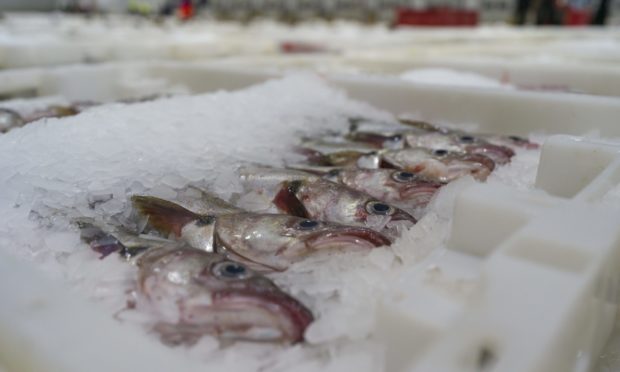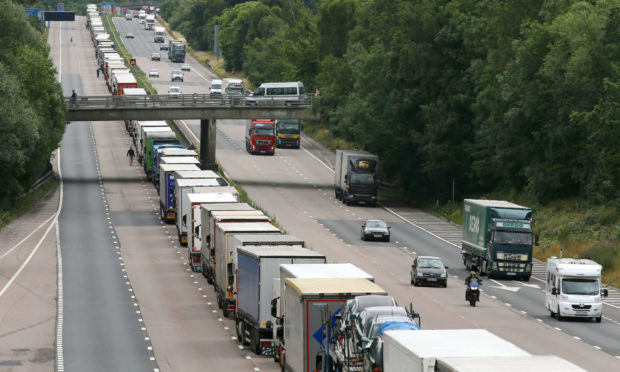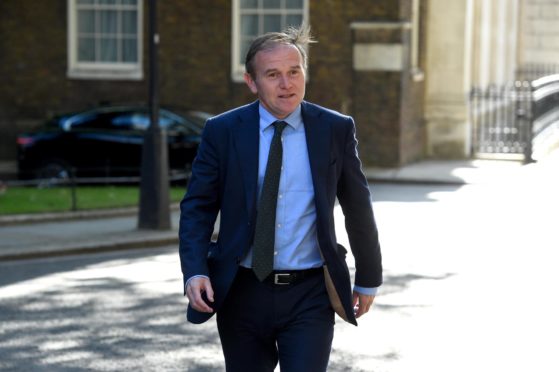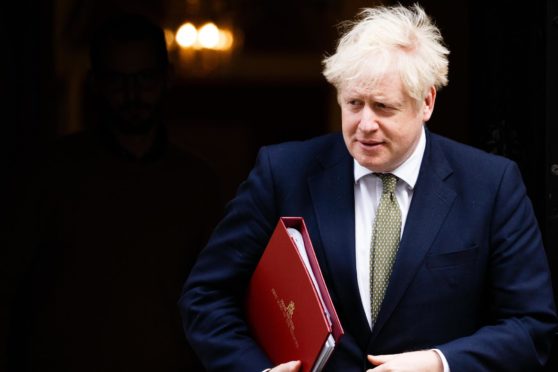Scottish fish exports “won’t be held up” in Brexit border checks, UK ministers have pledged – despite warnings from industry bosses.
Environment Secretary George Eustice told MPs that live produce will be “prioritised” for transit on both sides of the Channel come January 1.
His comments came after fish producers and road haulage bosses warned that disruption at the border could drag on for three months, regardless of whether there is a Brexit deal.
“We have arrangements to prioritise lorries carrying fresh fish, we also have an understanding with the French authorities that fish exports won’t be held up in checks at Calais,” Mr Eustice said.
The minister’s reassurance came as UK and EU negotiating teams reached an agreement on the implementation of the withdrawal agreement in Northern Ireland.
Cabinet Office minister Michael Gove and his counterpart Maros Sefcovic, co-chairs of the EU-UK Joint Committee, said in a statement that “an agreement in principle” had been reached on post-Brexit border arrangements on the island of Ireland.
Their discussions are separate to the post-Brexit trade deal talks that remain deadlocked but the agreement could improve relations between the two negotiating teams.
Sticking points remain
Boris Johnson said on Tuesday that trade talks with the bloc were proving “very tricky” and that it was “very, very difficult” to make progress, but that he was hopeful about reaching a deal.
Talks have faltered on the issues of fishing rights, the “level playing field” measures aimed at preventing the UK undercutting the EU on standards and state subsidies, and the way that any deal would be governed.
In a message to Brussels, the prime minister said: “Our friends have just got to understand the UK has left the EU in order to be able to exercise democratic control over the way we do things.
“There is also the issue of fisheries where we are a long way apart still. But hope springs eternal, I will do my best to sort it out if we can.”
Mr Johnson acknowledged that there may be a point where it is “time to draw stumps” and accept that a deal is impossible.
“There are just limits beyond which no sensible, independent government or country could go and people have got to understand that.”
‘Suspended’ access and Royal Navy
On the issue of fisheries, Mr Eustice was clear when he appeared before the Commons environment committee that negotiations on quotas would have to be “annual” – despite EU demands for a longer-term deal.
“You have to have annual negotiations simply because the state of different stocks changes, the science is updated annually, there’s new scientific advice you need to respond to, sometimes stocks migrate more into somebody else’s waters, that requires us to revisit sharing arrangements sometimes,” he said.
Mr Eustice said his team stood ready to negotiate next year’s quotas with the EU, but warned access could be “suspended”.

“It may be that there’s some slippage and we’re unable to reach an agreement before Christmas, in which case those negotiations would run into overtime. In those sort of situations access is generally suspended on all sides until an agreement is reached.”
Asked if Britain is ready to police its waters in the event of a no deal, he said: “Yes is the short answer. We’ve expanded our enforcement capacities.”
Mr Eustice added that his department can also “call on the Navy and they can retask other vessels to assist”.
Responding to fears exports could be held up by protesting French fishermen in the event of no deal, Mr Eustice said: “I see no reason why we couldn’t all get along.
“We will have a new regime for sharing fishing opportunities, exchange of access and we will continue to trade with one another.
“Once we get past this position that we’re all in now, it will be the case that they will be wanting to buy some of our very high-quality British fish and we will be wanting to buy their produce as well.”


